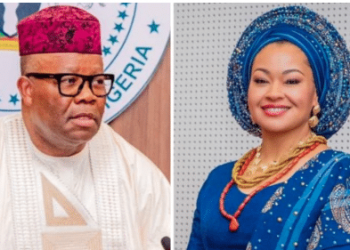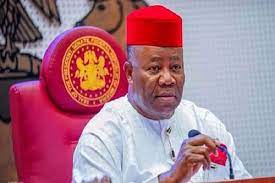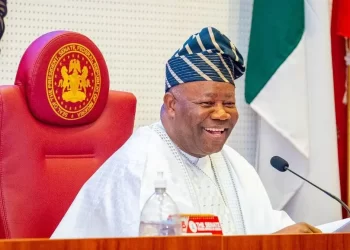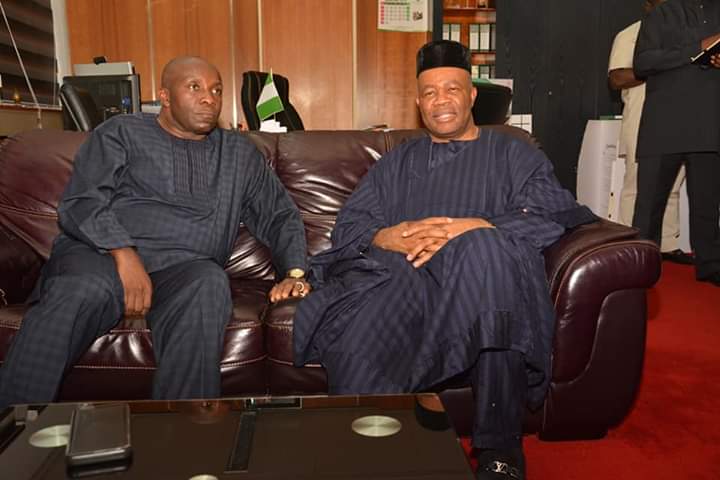Money paid as bribes to secure oil contracts from the Nigerian National Petroleum Corporation (NNPC) were used to fund the 2019 elections, according to Bloomberg.
In a report, the news medium highlighted how foreign contractors paid their way through to secure contracts.
One Jonathan Zarembok, an ex-British Petroleum Plc oil trader, was quoted to have said the European country paid $900,000 in fees to a local agent after securing two oil cargoes from NNPC.
According to Bloomberg, the bribes paid to win oil contracts were used to fund the 2019 general elections.
Names of political parties or politicians were not mentioned in the report.
The 2019 elections were dominated by the All Progressives Congress (APC) and the Peoples Democratic Party (PDP).
President Muhammadu Buhari of the APC defeated former Vice-President Atiku Abubakar of the PDP in the election.
One of the issues that dogged the election was vote-buying.
The Independent National Electoral Commission (INEC) had failed in its bid to check the trend of cash for votes.
The illegality of pumping bribes from oil contracts into election did not just happen in 2019, according to the report.
It was reported that a former Glencore Plc employee in July admitted paying a middleman $300,000 to secure a crude shipment from the NNPC, understanding the money would be spent on the nationwide vote that took place four years earlier.
In 2015, ex-President Goodluck Jonathan lost to Buhari, who made history as the first opposition candidate to defeat an incumbent president in Nigeria.
Zarembok, in lawsuits filed in London and New York alleged that cargo allocations by the NNPC could have contributed to preparations for general elections in 2019.
Zarembok, who left BP’s West Africa desk last year, said in the suit he suspected that fees paid by the U.K. energy giant to obtain NNPC contracts would go toward the elections.
He filed an employment claim against BP, alleging he was fired for raising concerns about the large sums being transferred to intermediaries to win business in Nigeria.
Zarembok said in a witness statement made public this month that emails sent in 2017 by a BP executive in Nigeria were a “clear red flag” and implied “there would be pressure to pay bribes.”
The emails discussed how preparations for elections would get under way in 2018. “We understand what that means,” the executive wrote.
The company then wired $900,000 in fees to a local agent after securing two oil cargoes from NNPC, he said.
“BP is defending in full and denies all allegations made by the claimant,” the company said in a statement.
It declined further comment while Zarembok’s case at a London employment tribunal continues.
It was also reported that similar details emerged two months ago, when Anthony Stimler, who left Glencore in 2019, pleaded guilty to corruption and money-laundering charges.
Stimler was notified in September 2014 that “Foreign Official 1” was asking all NNPC clients to pay an advance on each cargo “in connection with a then-upcoming political election,” according to U.S. court filings.
READ ALSO: College Of Health Technology In Benue Gets Full Accreditation
He then had Glencore wire $300,000 to an intermediary company, which prosecutors said was used “to pay bribes to Nigerian officials.”
U.S. prosecutors outlined how Stimler and others paid bribes worth millions of dollars in several countries, including to NNPC officials, between 2007 and 2018.
A Glencore spokesman didn’t respond to a request for comment.
“The conduct described in the plea is unacceptable and has no place in Glencore,” the company said in a statement on July 26.
When Daily Trust reached Garbadeen Muhammad, NNPC Group General Manager, Public Affairs, for reaction, he simply said, “The allegations are not true.”
Daily Trust












